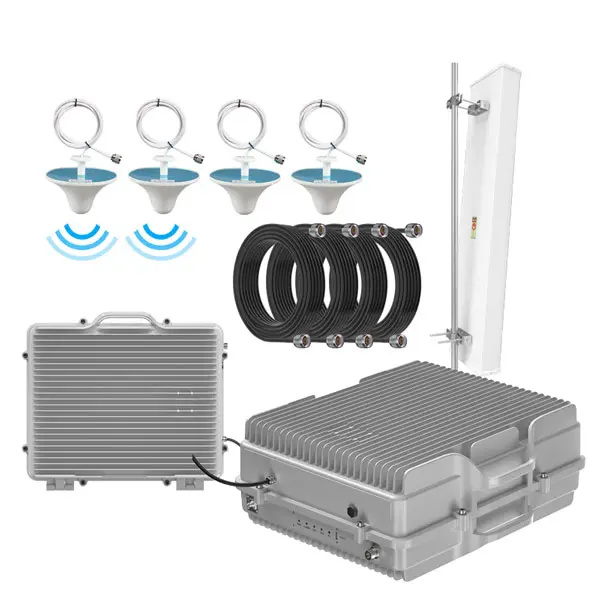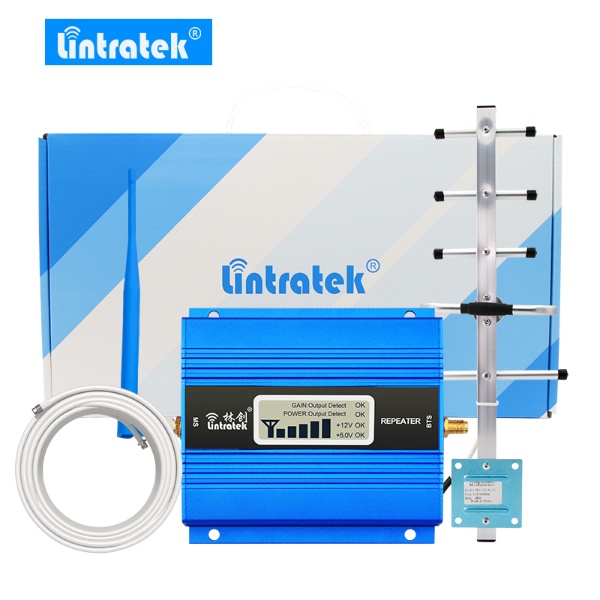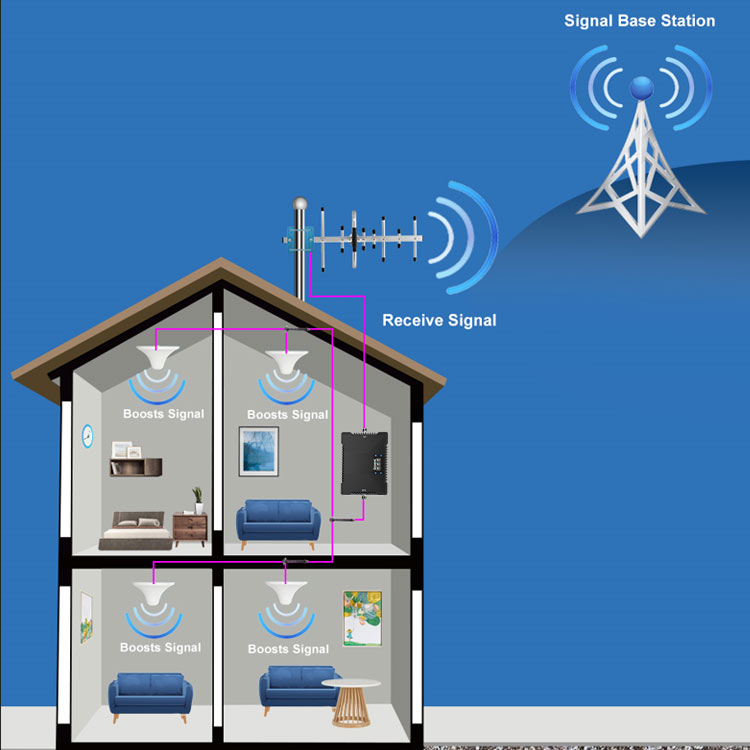When facing mobile signal dead zones or areas with weak reception, many users often opt to buy a mobile signal repeater to amplify or relay their mobile signals.
In daily life, mobile signal repeaters are known by several names: mobile signal boosters, signal amplifiers, cellular boosters, and so forth—all referring to the same product. Some commercially used or high-power long-distance mobile signal repeaters are also known as fiber optic booster. Whether for residential or commercial use, a common term you’ll often see online is “GSM Repeater.”
Here, GSM refers to the frequency bands used for mobile signals. Most mobile signal repeaters on the market are designed to operate within specific frequency bands. Depending on budget and product specifications, they typically support amplification across dual to quad frequency bands. Hence, mobile signal repeaters are not universal in their ability to amplify all frequency bands. They are generally designed to amplify or relay signals based on the local frequency bands in use
GSM Repeaters are so common primarily because GSM frequencies are widely used globally for 2G signals. In many regions, GSM900MHz serves as the standard 2G and 4G frequency band. For home users, amplifying or relaying GSM signals is often the most cost-effective solution.
1. Affordability and Simplicity: Single-band GSM products are inexpensive and easy to operate.
2. Functionality: GSM frequencies, typically used for 2G signals, support basic mobile functions like voice calls and SMS.
3. Coverage and Penetration: The lower-frequency GSM900MHz band offers strong penetration and wide coverage, reducing the need for multiple indoor antennas and simplifying installation.
4. Complementing Wi-Fi: Household mobile devices can use Wi-Fi for internet connectivity, further enhancing usability.
Given these factors, many households opt for GSM Repeaters to amplify and relay their mobile signals effectively and affordably.
Cell Phone Signal Booster for Home
So, how do you choose a GSM Repeater?
1. Frequency Bands: Start by ensuring that the GSM frequency bands used by your local telecom operators match those supported by the GSM repeater you intend to purchase.
2.Coverage Range: Consider the size of the coverage area and select a GSM repeater with appropriate power levels. Typically, this includes compatible amplifying antennas and feeder accessories.
3. Ease of Installation: For home users, ease of installation and operation are crucial. However, for commercial applications, professional companies should provide technical solutions.
4. Legality and Certification: Purchase products that comply with local telecom regulations and standards to avoid potential interference and legal issues. Legitimate signal repeaters often carry certifications such as FCC (USA) or CE (EU).
5. Brand Reputation and Reviews: Opt for products from reputable brands with good customer feedback to ensure product quality and reliable pre-sales and after-sales support.
Considering these factors will help you choose the right GSM Repeater to effectively amplify and relay your mobile signals.
Since 2012, Lintratek has been in the mobile signal repeater industry, accumulating 12 years of manufacturing experience. Our products are sold in over 155 countries and regions, enjoying widespread recognition. We take pride in our exceptional pre-sales and after-sales customer service teams. If you’re dealing with mobile signal dead zones or weak signals, don’t hesitate to contact us. We’ll respond promptly to assist you.
Post time: Jul-05-2024











